Kirk’s Leadership Reflects Aristotle’s Ethics
Captain Kirk’s leadership in "Star Trek" reflects Aristotle’s classical virtues—courage, justice, and fidelity—offering a timeless example of moral clarity in a future shaped by uncertainty.
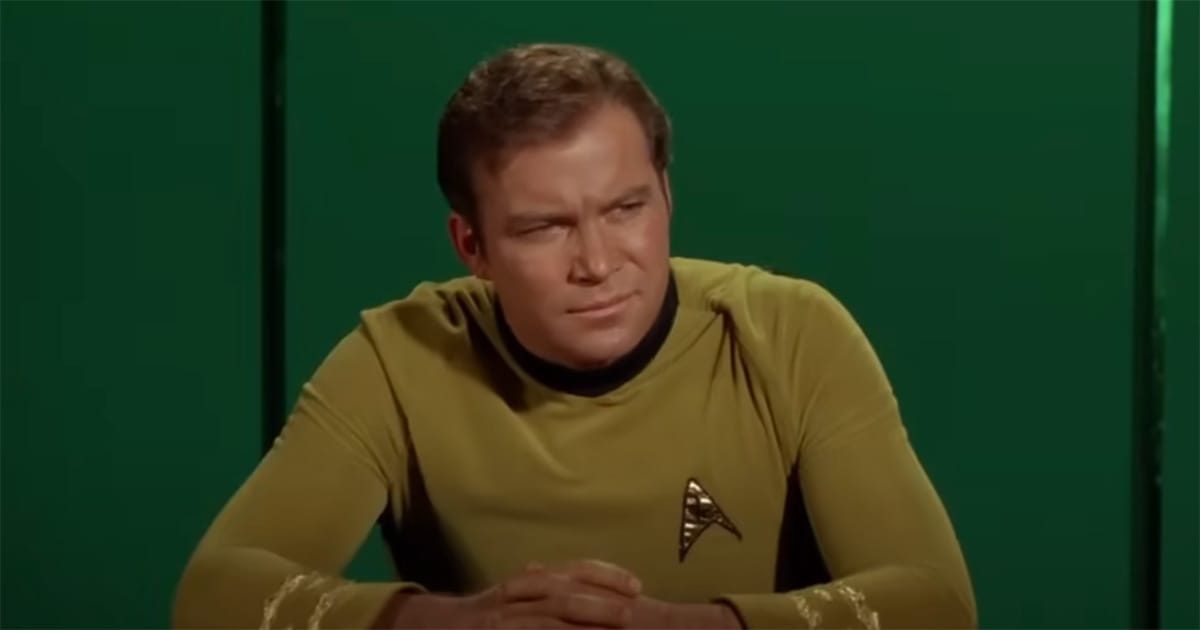
Captain James T. Kirk is one of the most enduring characters in American science fiction. To many, he is remembered as a swashbuckling space cowboy—a man of action who bends the rules, charms the ladies, and defeats the enemy with a quick bluff and a punch to the jaw. But this popular image misses the mark. Kirk is not merely a brash commander. He is, in truth, a deeply principled man whose decisions reflect a classical understanding of virtue.
"Star Trek," first aired in 1966, was a product of its era—an era that still valued courage, loyalty, and moral clarity. Set in a future where technology has advanced but human nature remains recognizable, the show offered imaginative adventure and a vision of ethical leadership. In this world, Kirk stood at the helm of the USS Enterprise as a man who embodied both command and conscience.
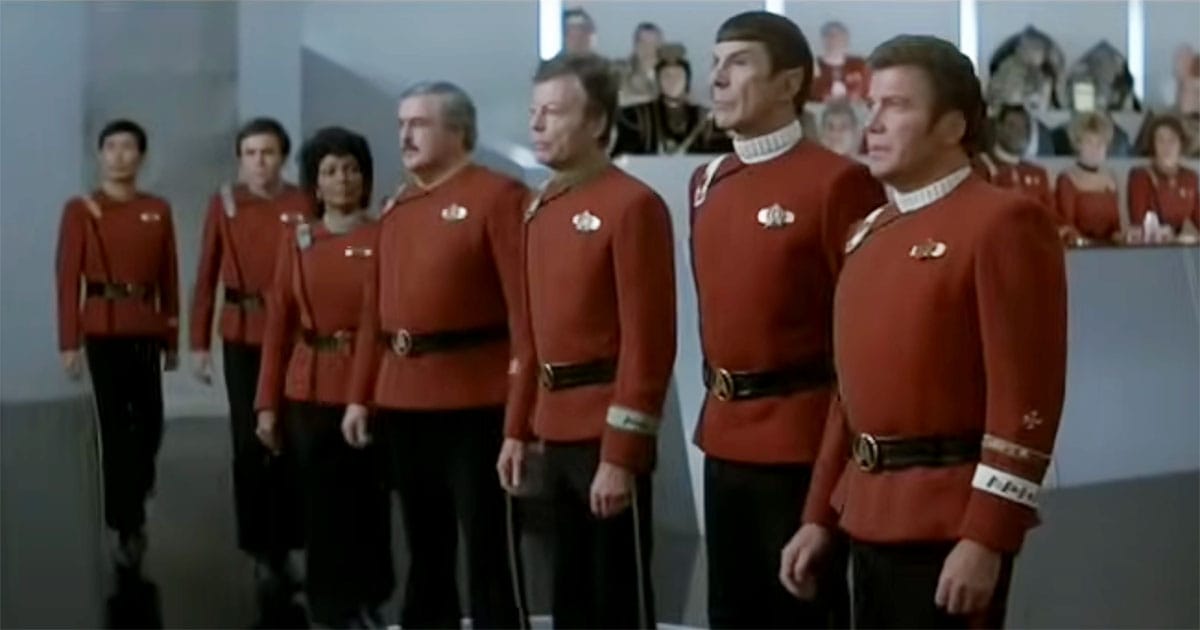
What makes Kirk good? Not simply effective. Not just likable. But good—in the moral sense. The answer lies in how he navigates responsibility, danger, and moral conflict. Time and again, he chooses what is right over what is easy, lawful, or safe.
Aristotle's Framework of Moral Virtu
Aristotle taught that moral virtue was not an inborn trait but a habit formed through deliberate practice. A virtuous man learns, over time, to choose rightly—not by following rigid rules, but by developing character. Virtue, in this classical sense, is excellence in living. It is the steady pursuit of what is good, guided by reason and tempered by experience.
The idea of the "golden mean" is central to Aristotle's moral philosophy—the middle path between two vices. For him, courage stands between cowardice and rashness. Justice lies between indulgence and severity. Fidelity, or the honoring of one's duties, balances servile obedience with self-serving independence. A virtuous man recognizes the right action as the one that fits the moment, the man, and the moral truth.
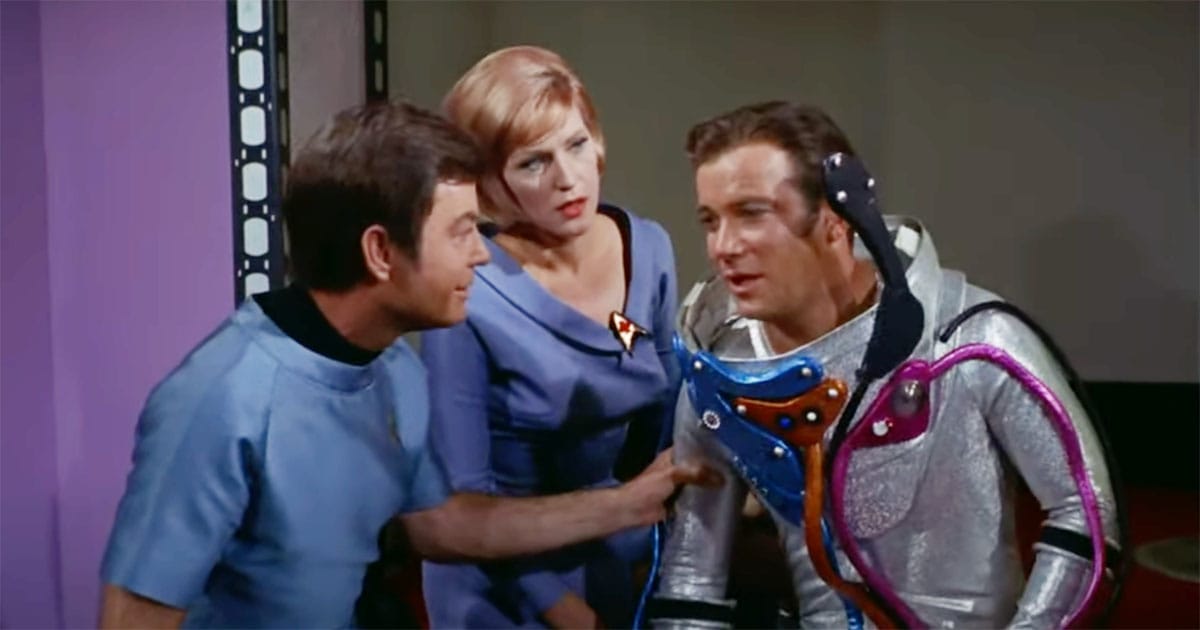
Such discernment requires phronesis, or practical wisdom. This is not mere intelligence, but a cultivated sense of judgment—knowing when to speak, when to act, and when to stand firm. It is what separates the impulsive from the principled.
These virtues—courage, justice, and fidelity—form the foundation of any moral life. They also describe, with surprising accuracy, the leadership of Captain Kirk. Not as a rebel, but as a man trained in choosing well. A commander in pursuit of the good.
Courage Under Fire
Captain Kirk is often placed in situations where hesitation would be fatal and recklessness would be ruinous. In these moments, he demonstrates what Aristotle would call true courage—not bravado, not fearlessness, but the ability to choose rightly in the face of danger. His actions are rarely about proving himself. Instead, they reflect a steady concern for his crew and the mission entrusted to him.
In "The Corbomite Maneuver," Kirk encounters a seemingly superior alien vessel threatening to destroy the Enterprise. Rather than flee or attack, he calculates a third option—a bluff, claiming the ship is protected by a deadly defense mechanism called corbomite. It's a risk, but not a reckless one. He reads the situation, buys time, and avoids bloodshed. The decision preserves both lives and principles. This is courage in action—bold but measured.
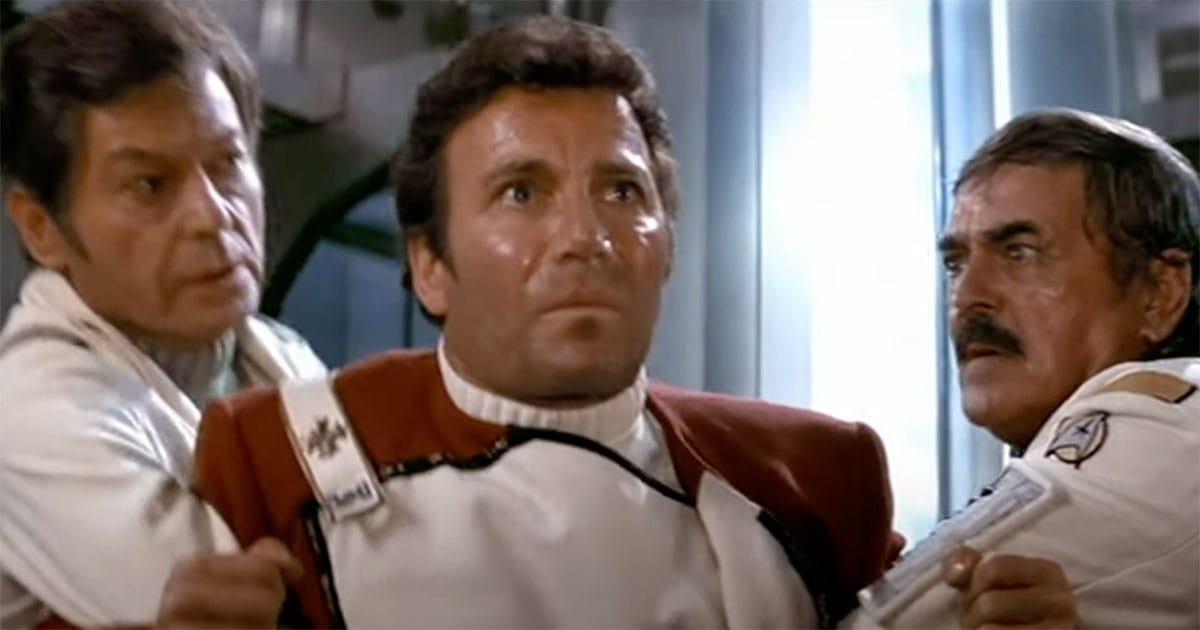
In "The Tholian Web," Kirk is presumed lost in interspatial space. Spock, acting captain, resists pressure to retreat, choosing instead to remain and attempt rescue. But the loyalty and training that enable Spock to make that decision reflect Kirk's own leadership. Kirk fosters a command culture rooted in duty, not panic. When the unknown threatens, his crew does not scatter. They follow his example.
Aristotle warned against confusing rashness with bravery. A good commander does not chase danger for its own sake. Kirk exemplifies this. His courage lies in his control—in his ability to weigh options, reject fear, and act decisively for the good of others. That is the mark of a virtuous man.
Justice and Duty in Conflict with Orders
Captain Kirk does not wear rebellion as a badge. When he disobeys orders, it is not to make a point or to assert his independence. It is because he recognizes a higher obligation—to justice, to loyalty, and to the enduring principles the Federation is meant to uphold. Aristotle's virtue of justice demands giving others what they are due. That includes truth, dignity, and, at times, rescue. Kirk does not defy authority lightly, but he will do so when the letter of the law threatens its spirit.
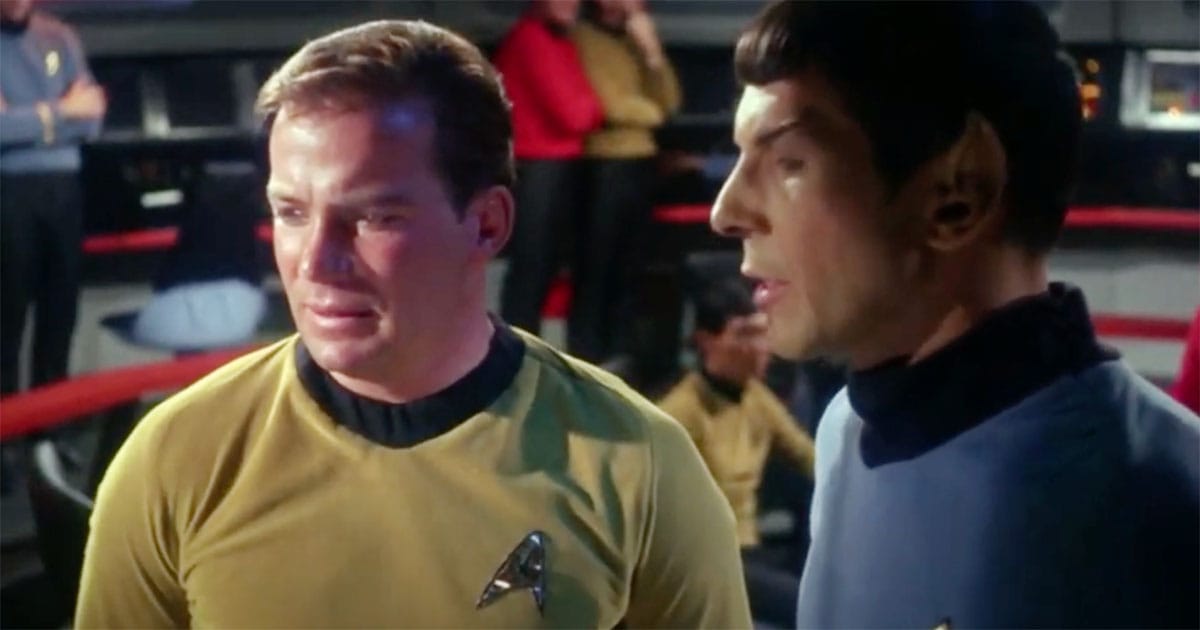
In "The Omega Glory," Kirk encounters Captain Tracey, a Starfleet officer who has abandoned all pretense of duty, using his rank to support a brutal regime in hopes of personal gain. Rather than follow protocol or ignore the situation, Kirk takes action. He confronts Tracey, exposes the corruption, and refuses to lend Starfleet's name to tyranny. His duty is not to the uniform but to what the uniform stands for. That distinction matters.
The stakes are even more personal in "Star Trek III: The Search for Spock." Starfleet forbids Kirk from retrieving Spock's body and McCoy's damaged mind. Obedience would mean abandoning both men. Kirk refuses. He steals the Enterprise, risks court-martial, and loses his son in the process. It is the cost of doing what is right. For Kirk, friendship and loyalty are not sentimental, but moral obligations. Fidelity, in Aristotle's terms, means honoring one's commitments to those who deserve it.
Kirk's justice is not abstract. It is practical and relational. He gives others their due, even when doing so places him outside the bounds of regulation. His fidelity is not to hierarchy or command, but to the people and principles he has sworn to protect. That, too, is a virtue.
Command with Character
In a world increasingly shaped by moral ambiguity and shifting cultural norms, Captain Kirk remains a figure of surprising clarity. His decisions, though dramatic, are rarely impulsive. They reflect a deep internal calibration—what Aristotle would call a virtuous character. He does not follow rules blindly, nor does he discard them out of pride. Instead, he exercises judgment, balancing courage, justice, and fidelity with steady conviction.
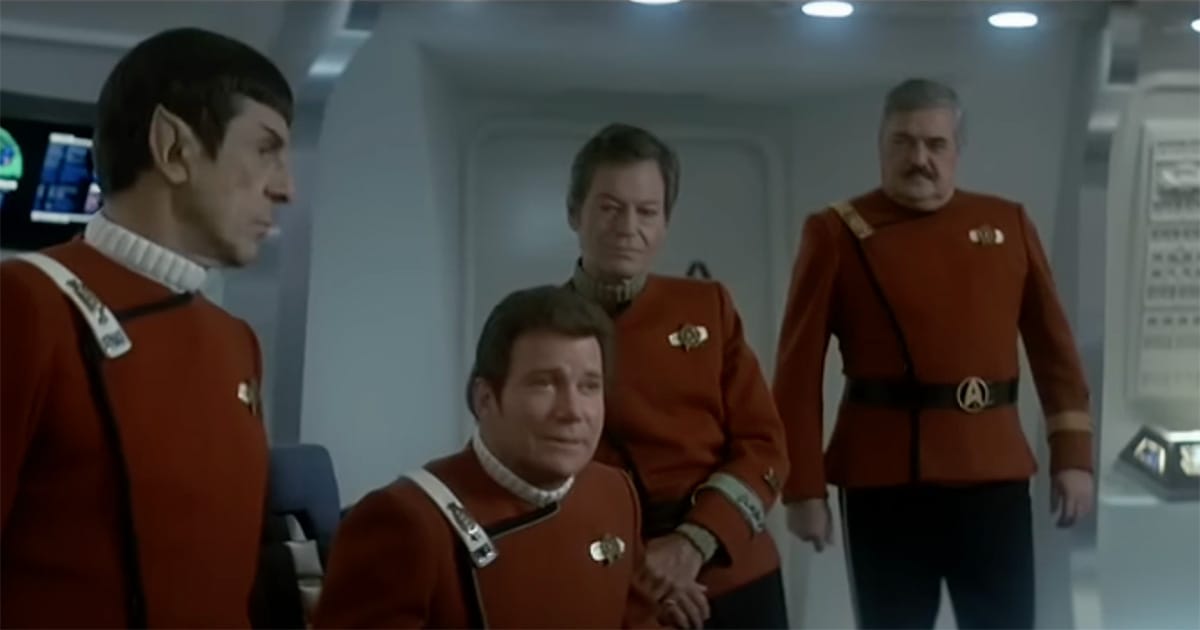
Kirk's appeal endures not just because he commands a starship, but because he commands himself. His loyalty to crew and principle, his willingness to risk for others, and his moral firmness in the face of uncertain outcomes set him apart from many fictional leaders created before or since. He is not a relativist. He does not ask what is popular or expedient. He asks what is right.
He reflects a model of leadership grounded not in fashion or feelings, but in character. He is proof that even in the far reaches of imagined space, virtue still matters.

